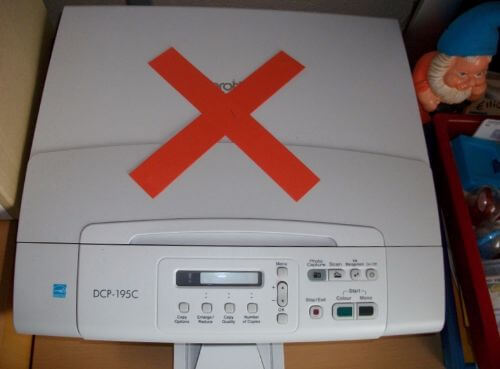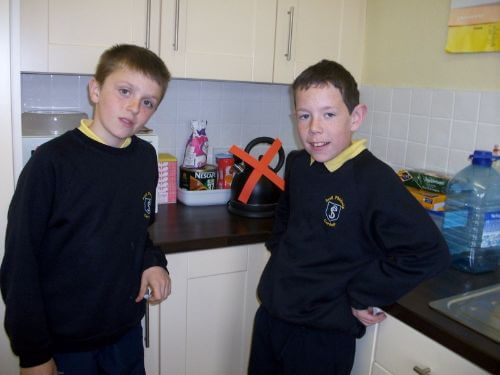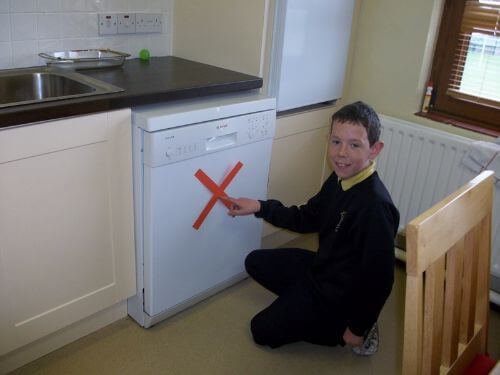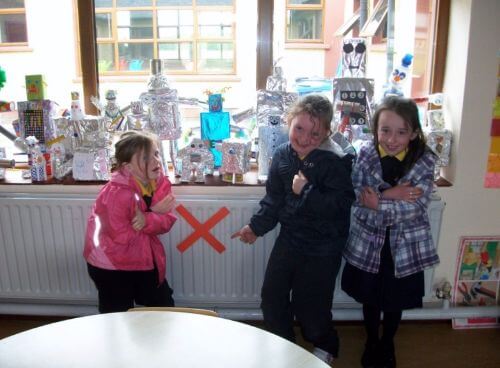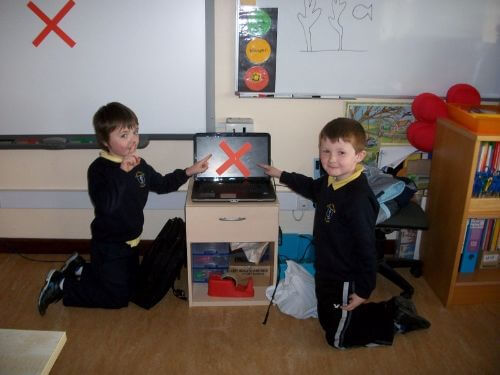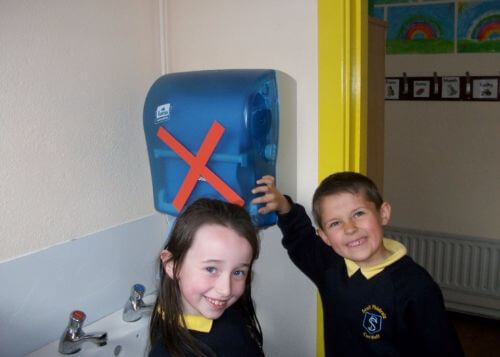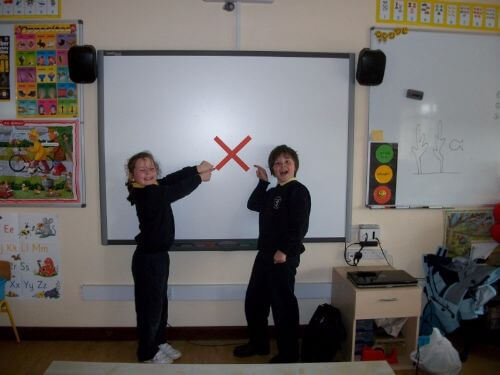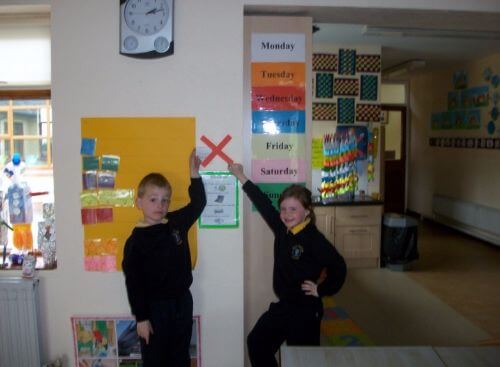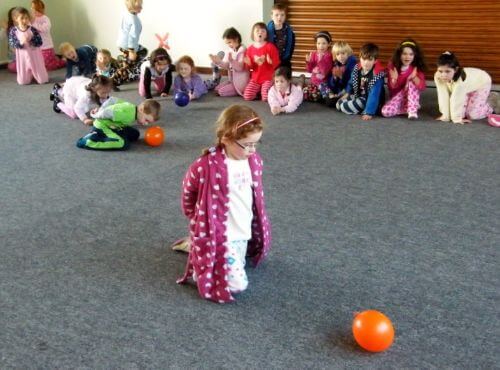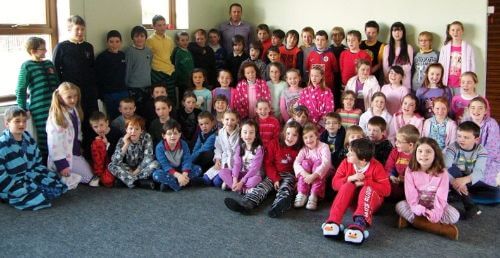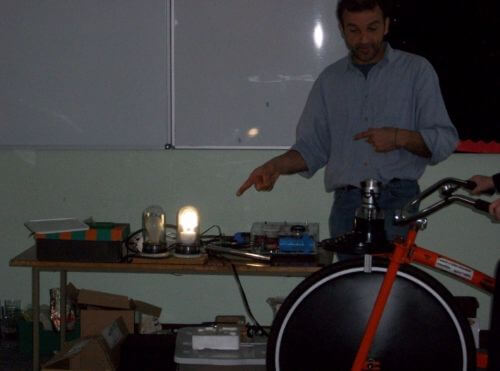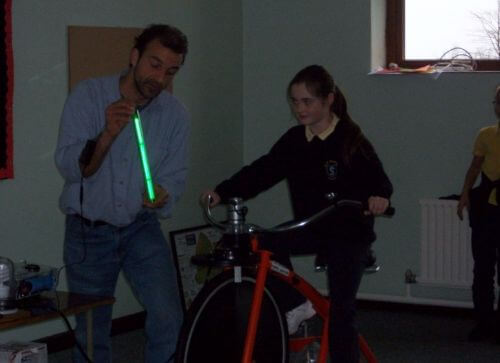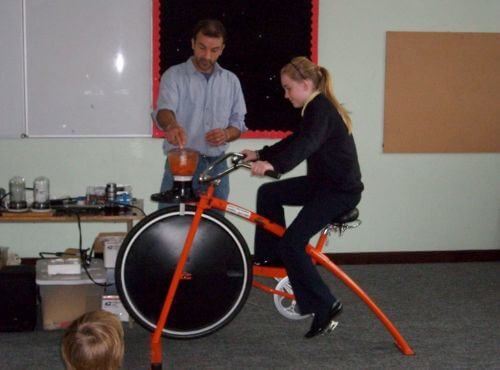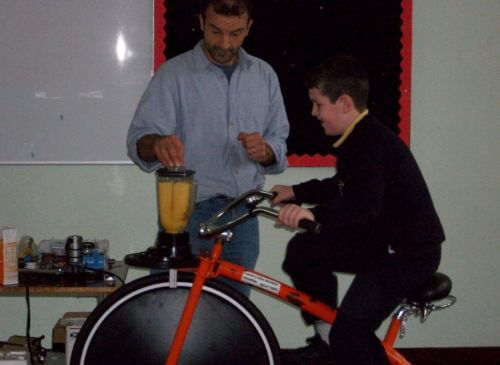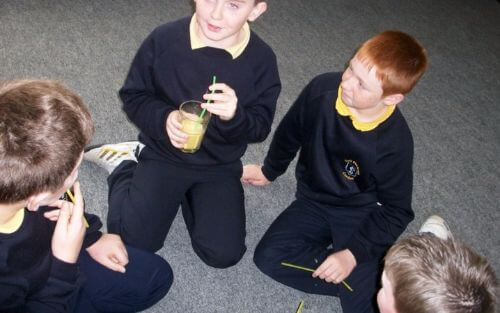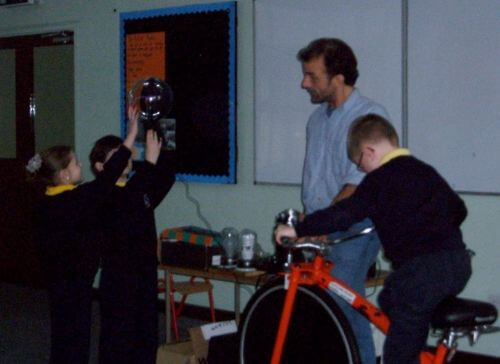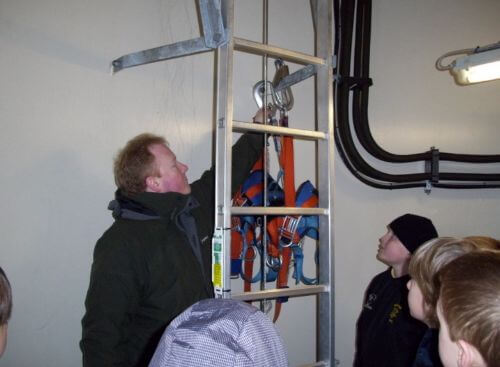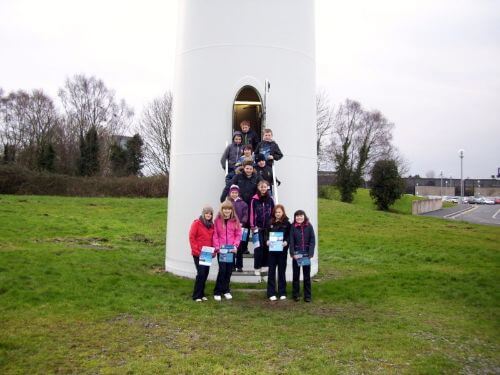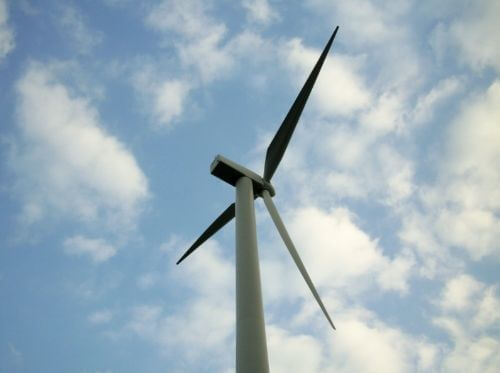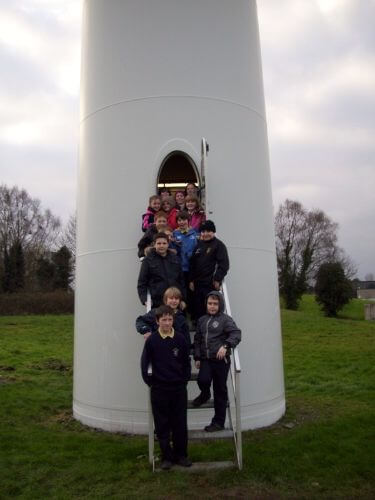Energy is the second theme that schools undertake during the Green-Schools programme and we obtained this award in 2012. Children are encouraged to switch off lights and appliances when not in use and to close doors and windows to conserve heat.
The Green Schools committee held a ‘No Energy Day’ in April 2011 to raise awareness and encourage people to save energy to benefit the environment.
We also organised a ‘Low Energy Day’ in October 2011 to make others aware of the benefits of saving energy. It was a very successful day and we has a visit from Kieran Marron from Activ8 Energies to speak about his solar energy business. In order to stay warm and cosy, the staff and pupils wore their pyjamas as the heat and electricity was turned off for the day. Mrs. Grimes class organised an energy workshop for other class to visit and take part in some fascinating energy experiments.The children learned about GUZZLER from the SEAI lesson programme.
The Green Schools committee held a ‘No Energy Day’ in April 2011 to raise awareness and encourage people to save energy to benefit the environment.
We also organised a ‘Low Energy Day’ in October 2011 to make others aware of the benefits of saving energy. It was a very successful day and we has a visit from Kieran Marron from Activ8 Energies to speak about his solar energy business. In order to stay warm and cosy, the staff and pupils wore their pyjamas as the heat and electricity was turned off for the day. Mrs. Grimes class organised an energy workshop for other class to visit and take part in some fascinating energy experiments.The children learned about GUZZLER from the SEAI lesson programme.
The Green Committee organised a Human Powered Workshop where the students used manually powered equipment to operate a number of items including a smoothie bike and fibre optic lamps. Take a look!!
6th class visited a wind turbine in Dundalk Institute of Technology and they learned lots about renewable sources of energy in Ireland.
On 19th November the children took part in a Tree Workshop. They learned about lots of different animals, birds and insects and their habitats. In the afternoon each child planted an individual family tree on the school grounds. Sixty six trees were planted in total. We would like to thank Nial O’Connor (Environmental Officer for Monaghan Co. Council) for inviting us to partake in this fabulous workshop.
We have undertaken a survey of lights and appliances and highlighted areas where improvements can be made.
- We implemented a ‘switch off’ and ‘close the door’ policy.
- We investigated room and corridor temperatures and made recommendations.
- We undertook a home energy survey, published the results and issued energy saving tips.
- We took part in An Taisce/ESB energy project
- We held a ‘Low Energy Day’ which helped to promote Energy Awareness.
- We continue to monitor the amount of electricity used by taking weekly readings of the electricity meter.
- We continue to monitor the amount of oil used by regularly dipping the oil tank.
- We availed of grants to improve our insulation.
- We installed new doors and double glazed windows where possible.
- We installed thermometers in every room to monitor temperatures.
- We continue to inform and involve the school and wider community about our activities using a newsletter, school website, local newspaper & school assembly.
- We encourage lowering energy consumption through curriculum work.
- We have an Energy Code which was designed by the pupils
Scoil Phádraig’s Energy Green Code
“Show the Earth you care, Be Energy aware!”
When you’re leaving the classroom,
Remember one thing,
Close the door behind you
To keep the heat in!
It’s easy to save energy
And save your euro too
Switch off the light when it is bright
That’s all you have to do!

